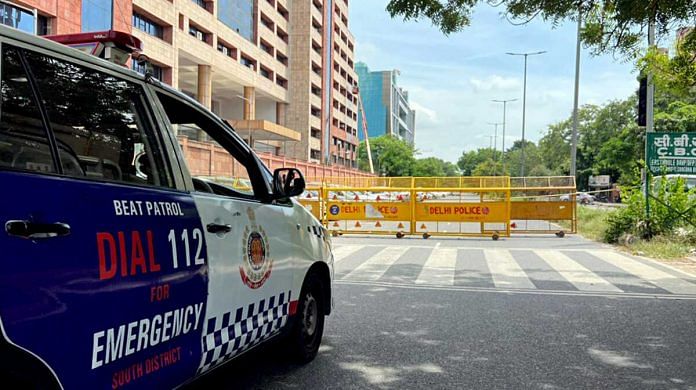
New Delhi: Lieutenant Governor Vinai Kumar Saxena Thursday approved a proposal to extend the Telangana Prevention of Dangerous Activities Act to Delhi. If enforced, the act would allow the Delhi Police to carry out preventive detentions in the city.
A proposal by the Delhi Police to extend the act was sent to the Ministry of Home Affairs (MHA), sources confirmed to ThePrint.
The L-G has “approved and forwarded Delhi Police’s proposal to the MHA for issuance of notification under Section 2 of the Union Territories (Laws) Act, 1950 for extending the Telangana Prevention of Dangerous Activities to NCT (national capital territory) of Delhi,” said a senior police officer.
“This is a crucial step to effectively prevent and deter growing organised crime, sexual offences, land grabbing, chain snatching, gaming offences, and white collar financial offences,” the officer added.
According to government officers, the act can be used to crack down on “bootleggers, drug offenders, immoral traffic offenders, land grabbers, food adulteration offenders, fake document offenders, scheduled commodities offenders, gaming offenders, sexual offenders, explosive substances offenders, arms offenders, cybercrime offenders, and white collar or financial offenders”.
In July 2021, a three-judge bench of the Supreme Court had called the legislation a “draconian law”. “It is a draconian law clearly against the liberty of persons. It is surprising that no one has challenged the validity of the law,” Justices R.F. Nariman, K.M. Joseph and B.R. Gavai said, while hearing a petition filed by the wife of a detainee.
According to the Union Territories (Laws) Act, 1950, the Centre may by notification in the official gazette extend to Delhi any law in force in other states with any restrictions and modifications as it deems fit. By this provision, the Telangana law can be extended here, but only after an approval of the MHA, since the Centre controls law and order and police in Delhi as it is a Union Territory.
Also Read: Feeling licorishhh? How Delhi Police seized mulethi soaked in heroin worth Rs 1,800 crore
‘Needed for prevention of criminal activities’
The Delhi Police had first sought the enforcement of this law in June, citing the “need for stringent legislation for the prevention and effective control of criminal activities, particularly by repeat offenders”, the sources told ThePrint.
These criminal activities include boot-legging, land grabbing, snatching, robbery, arms running, sale of drugs, gambling and sexual offences among others, the police sources added
“This act is very effective in tackling criminal elements that affect public order,” said a senior police officer, adding that if passed, the law “will help immensely in bringing down crime”.
According to another Delhi police officer, the proposed notification provides that the Government (i.e., the L-G in Delhi) may, if satisfied, with a view to prevent a person from acting in any manner prejudicial to the maintenance of public order, if it is necessary, make an order directing his/her detention.
‘Sufficient provisions to prevent misuse’
Asked about the misuse of the act, a second Delhi government official said, “It has sufficient embedded provisions to prevent any misuse by providing for an advisory board to ratify detentions and their extension.”
All detentions under the act will be subject to ratification by an advisory board, the officer explained, adding that the person will be released if the board does not ratify the detention.
“The period of such detention shall not, in the first instance, exceed three months and the maximum period shall not be more than 12 months from the date of detention,” the officer told ThePrint. “In every case where a detention order has been made under this act, the government shall within three weeks from the date of detention, place the matter before an advisory board constituted by the government for this purpose.”
The officer added that the advisory board will consist of “members who have been judges or are qualified to be appointed as judges of a high court”.
(Edited by Amrtansh Arora)
Also Read: Bogus SMSes, victims cheated of over Rs 1 cr, 65 arrests — how Delhi cops blew lid off ‘BSES scam’

COMMENTS